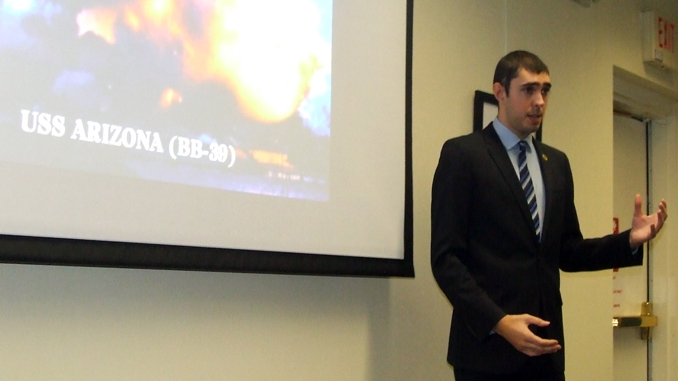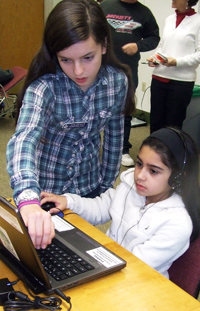
You could consider Matt Soltis a walking encyclopedia. He can describe planes and battles without ever referring to notes. But an encyclopedia is usually a dry collection of facts, and Mr. Soltis radiates enthusiasm.
He’s billed as an aviation historian, which makes you think of someone fairly old. But this historian collected his information in a short period of time. He’s still south of age 30.
On Dec. 3, he was at the Cornwall Public Library to explain the turning point in the Pearl Harbor attack. Many of the spectators looked familiar. They had been part of the audience when Mr. Soltis discussed the American success at Midway.
The numbers for Pearl Harbor are staggering. The Americans lost 300 aircraft, 8 battleships, and about 2,500 servicemen. But the attackers did not accomplish their objective of driving the Americans out of the Pacific.
Mr. Soltis described the bombing of the Arizona, briefly referring to the intense heat that seared through every part of the ship. The Arizona capsized and trapped several seamen inside. But the smoke from the ship obscured many important targets.
The Japanese canceled the third wave of the attack because of the American anti-aircraft fire. Many objectives (such as the oil fields and aircraft carriers) were left intact.
While the bombing had come as a surprise, Mr. Soltis said that Col. Billy Mitchell had predicted it years in advance. The colonel was a proponent of air power, but he was also unpopular with his peers. And his warnings went unheeded.
While the losses at Pearl Harbor were heavy, the attack did not have the expected effect on the American morale. Rather than withdraw from the Pacific, the United States entered the war — which led to Jimmy Doolittle’s air raid of Tokyo.
“I’d love to do a whole program on that,” Mr. Soltis said with an eager grin. The audience responded positively. Several people said they’d like to come back to hear it.



